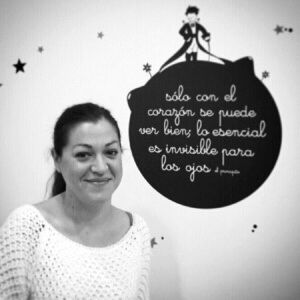How Many Weeks Have I Been Pregnant?


Written and verified by the psychopedagogue Leticia María Fernández Gutiérrez
If you are pregnant, surely one of the first things you’ll want to find out is how far along you are.
Some questions arise when it comes to determining this, like: Why is pregnancy time counted from your last period? Is there any way to know exactly how far along I am? Is it true that pregnancy lasts exactly 9 months?
To answer all of these questions, here are some interesting facts about pregnancy and its timeline.
Knowing how long you’ve been pregnant is essential in having an adequate follow-up with your medical team. It will also help you better understand the changes in your body and the growth of your baby.
Here are some basic concepts about pregnancy that will come in handy. As you learn more, don’t hesitate to ask for additional information.
- Gestational age: the period of fetal growth. In other words, the amount of time your baby has been growing inside you. It is important to know in order to measure his development against certain intervals.
- Premature delivery: a delivery that occurs before week 37.
- Full term pregnancy: the complete gestation process. In other words, the baby is completely formed and is ready for imminent delivery. This occurs between 38 to 42 weeks.
As an interesting fact, you will always be given the gestation time in weeks. It is the most concrete way of pinning down the gestational age. At first it will be difficult to translate it into months, but soon you will get used to the “language of pregnancy.”
Everything good in life is a whirlwind: make love, dance, jump, fly, have a fit of laughter, kiss… and have a child.
-Ana María Simón-

You have to count from your last menstruation
Why do you have to count from your last period, if fertilization happened after? It’s very simple: we often don’t know the exact day in which everything began, so, by protocol, it is more accurate to mark the start day as the first day of the last menstruation.
This will add about two weeks to the actual timeline of your pregnancy. Although ovulation occurs approximately 15 days after the last period, the perfect time to conceive or the time of fertilization varies from one woman to another.
The cessation of menstruation and physical changes such as breast growth or uterus pain are some of the symptoms of pregnancy. In any case, always consult your doctor first.
There are pregnancy tests on the market that have a conception indicator, which not only tell you whether you are pregnant, but also add an approximate time to the same pregnancy.
Their reliability is not 100%, but they do offer an answer for how long you have been pregnant in terms of weeks. These tests are done at home and you can buy them at any pharmacy.
Even so, the most advisable thing is to go to your doctor or gynecologist to proceed to the pertinent tests.
The ultrasound
These tests will be the most insightful in telling how long you have been pregnant. An ultrasound is an image of the inside of your uterus.
Your doctors will conduct several ultrasounds during your pregnancy, and you can see how the baby grows, hear his heartbeat, find out his sex, etc. In an ultrasound you can make different measurements of the baby’s size, which will help to frame the gestational period.

Some women have questions when they go to their doctor to find out how far along they are. When do you start counting the pregnancy timeline? Why do they say it lasts 9 months? Below are the questions.
Pregnant for 9 months
This isn’t really so. A full-term pregnancy lasts between 38 and 42 weeks. If we count every month as approximately 4 weeks, we would actually come to about 10 months. Why?
As we count from the beginning of the last menstruation, we should add on about two more weeks, since fertilization usually occurs during the ovulation process, which more or less occurs in the middle of the cycle.
We suggest asking your doctor, gynecologist or midwife all of your questions, since as specialists they will know how to advise you and answer everything you want to know. Your medical team is there to guide you throughout the process with much more confidence.
This text is provided for informational purposes only and does not replace consultation with a professional. If in doubt, consult your specialist.
